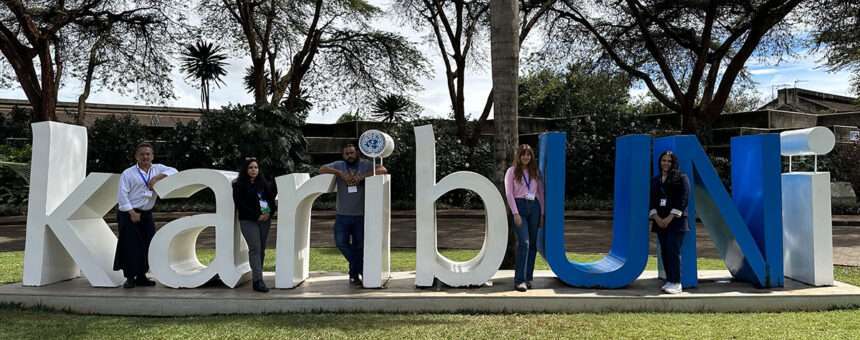Last month, seven representatives of the Environmental Justice Communities Against Plastics (EJCAP) coalition attended the Global Plastics Treaty Talks in Nairobi, where the UN’s International Negotiating Committee held their 3rd round of negotiations (INC-3) to draft a treaty to curb plastics pollution worldwide. While the goal is to present a binding treaty to UN member states by the end of 2024, INC-3 found industry lobbyists aiding major plastics-producing nations to derail any progress on substantive additions to the Zero Draft treaty. And while a number of developing small island states and a handful of countries like Brazil expressed support for the inclusion of Indigenous people’s land rights and just transition for waste workers, their voices were overshadowed by wealthier nations representing the interests of fossil fuel, petrochemical and plastics industries. By the closing day of the talks, it was clear we need to muster far more “people power” and influence if we aim to see any success in the year ahead. The power and influence of the giant corporations responsible for the vast majority of world’s plastics pollution remains unchecked in all aspects of this UN treaty process.
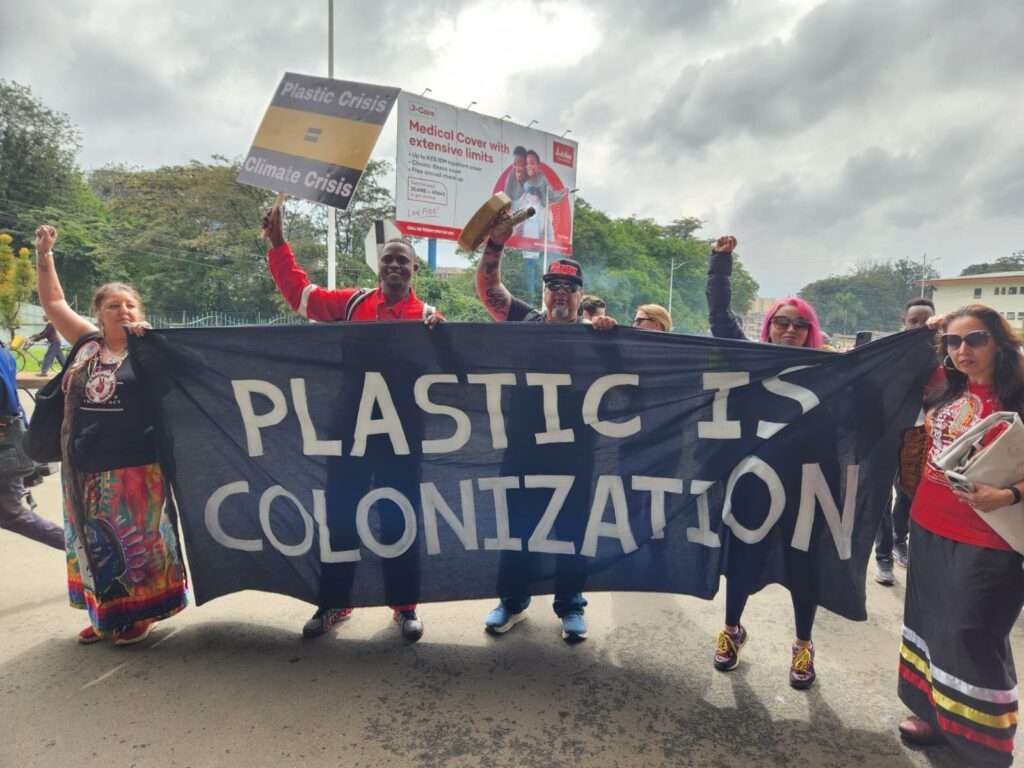
Indigenous Community Leaders from Break Free From Plastics. Photo credit: BFFP
The EJCAP coalition recently came together as one of the first community-led coalitions on Turtle Island (so-called North America) to work on advancing environmental justice policies and strategies to tackle the growing plastics-petrochemical crisis. Our delegation to INC-3 aimed to:
- Collaborate with labor, Indigenous peoples and NGO allies to compel UN delegates to develop a treaty that meets the needs of those most harmed by plastics pollution
- Collaborate with allies to advance just transitions strategies, principles and pathways to guide treaty negotiations towards community and worker-led solutions
- Find creative ways to leverage the power of civil society, to overcome the political influence of corporate greed in shaping an ambitious and effective treaty.
Arriving in Nairobi, we first grounded our efforts by building alignment with the leadership of the International Alliance of Waste Picker unions (IAWP). Starting with a visit to the Kibera Landfill, where we joined the Kenya National Waste Pickers Welfare Association on a door-to-door waste collection in Nairobi’s largest slum, we learned how these frontline workers protect the health of residents, local farms and ecosystems through their critical services of collecting and separating plastics from compostable and recyclable discards. Spending the day with some of the poorest workers who tackle plastics on a daily basis, we were reminded that this global ecological crisis can only be effectively tackled with the leadership of communities and workers most impacted at the helm.
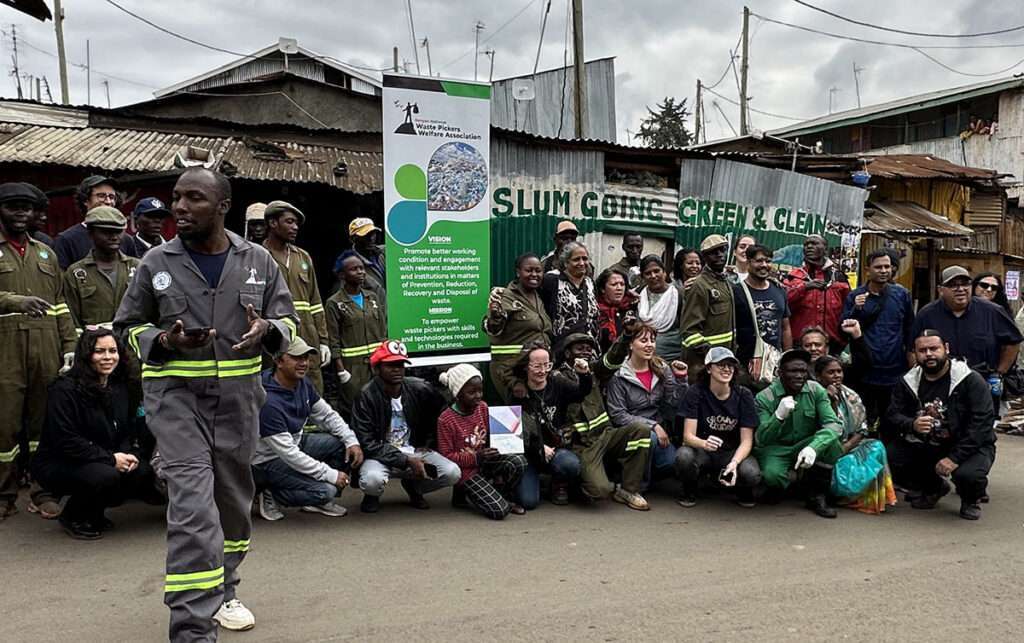
Members of EJCAP and the Alliance of International Waste Pickers. Photo credit: AIWP
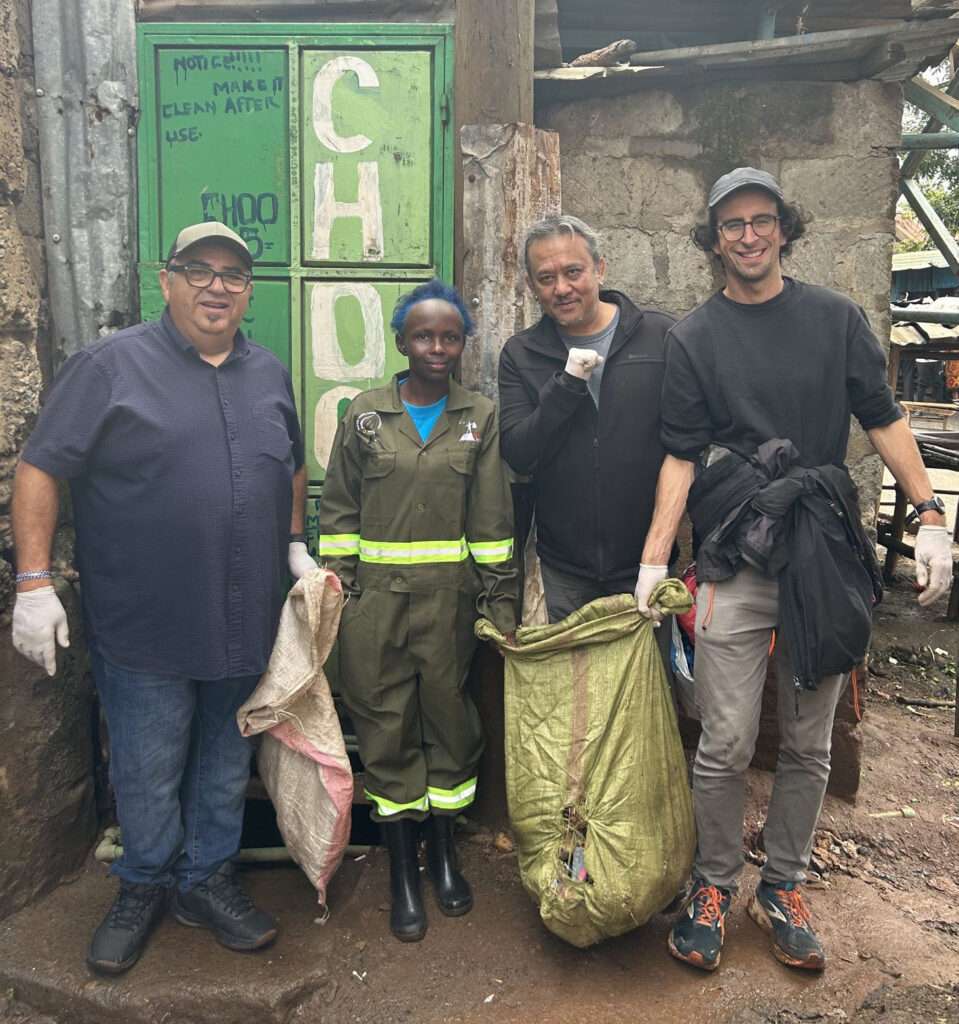
Just Transition Alliance & Alliance of International Waste Pickers join forces. Photo credit: PSR-LA
We continued building relational alignment with allies throughout the rest of the week, learning from the keen analysis and positions being advanced by members of the Global Alliance for Incinerator Alternatives, the International Pollutants Elimination Network and the Break Free From Plastics coalition. It was helpful to also learn from a number of allied Recycling and Reuse practitioners in attendance, especially those who are vocal about delineating between industry greenwash and ways to replace plastics with materials that are sustainably produced while causing far less harm.
Over the course of the week, it became clear that more civil society power and strategic influence would be needed to effectively push back against the force of industry lobbyists, whose teams appeared to outnumber both NGO delegates and scientists organizations combined. Some of our allies identified that over 143 industry lobbyists had been registered at INC-3 by petrochemical industries alone. And as expected, these lobbyists had scaled up efforts to peddle bogus schemes such as the notion of plastic circularity and rebranding the combustion of toxics as chemical recycling.
On a positive note, it was encouraging to see the progress that allies such as GAIA, CIEL and IPEN have made by engaging key delegates, in order to advance discourse on chemicals of concern, stopping plastics production and protecting human and environmental health. Our IAWP allies also presented a Vision for a Just Transition for Waste Pickers, at a side event hosted by the Brazilian embassy, which was particularly inspiring and effective at prompting a number of delegates to voice commitments to support waste picker demands inside the negotiations. This just transition platform included worker health and livelihood safeguards, as well as guidance for recognition, and the inclusion of waste picker unions in the design of all plastics laws and policies, and it was impressive to note that our IAWP friends had swayed members of the International Labour Organization (ILO) and International Trade Union Confederations to support their positions at this forum.
Finally, INC-3 saw the start of critical conversations between waste pickers and Indigenous Peoples, identifying areas of commonality, mutuality and solidarity within the plastics treaty framework. JTA believes that aligning just transition strategies around key principles such as Free, Prior & Informed Consent, community & worker leadership in policy making, and the centering of Indigenous and traditional ecological knowledge will provide the best chance for a robust and effective plastics treaty to emerge from this process. However, for this to happen, we need to vastly increase the participation of organizations representing Indigenous and frontline communities and labor unions in this UN process. Let’s see if we can make this happen on the road to INC-4 in Ottawa next April.
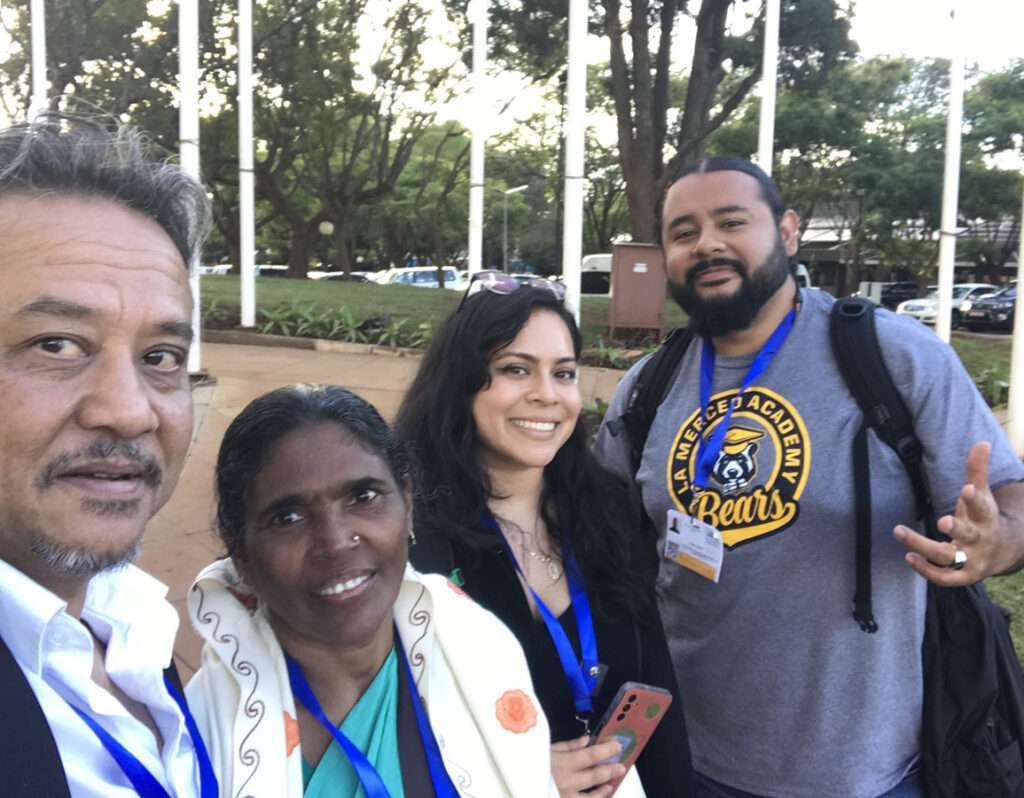
Ananda with Andrea Luna and mark Lopez of East Yard Communities for Environmental Justice, and Kulsum Begum, General Secretary of the Bangladesh Union of Waste Pickers. Photo credit: Ananda Lee Tan
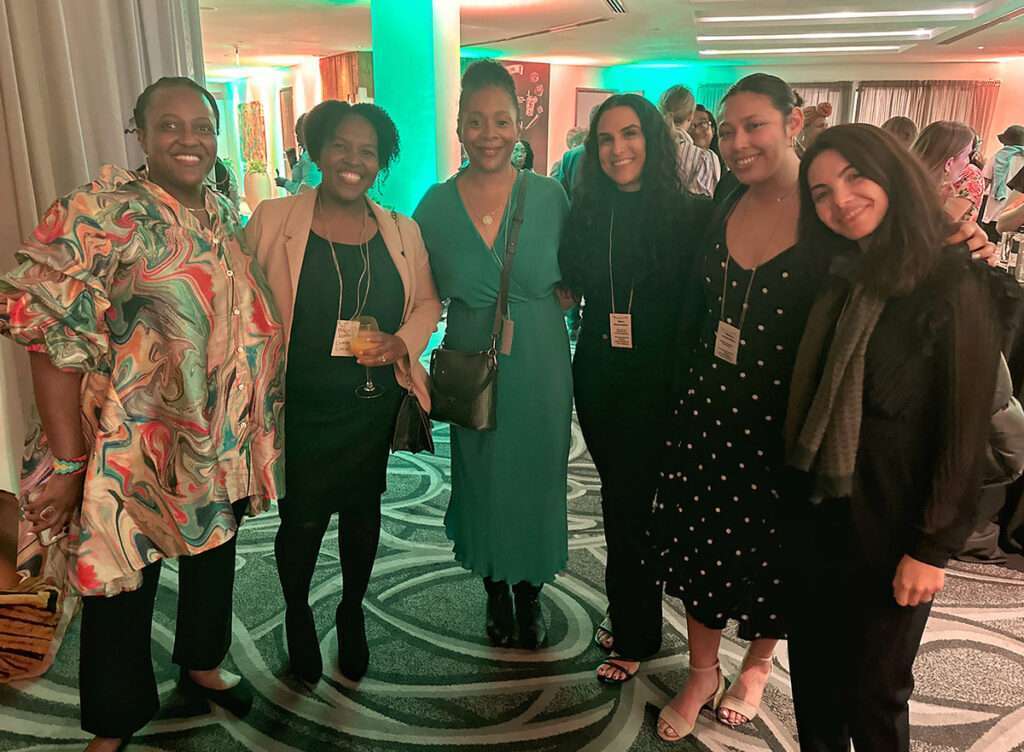
EJCAP members with the Bloomberg Petrochemical Campaign Team. Photo credit: PSR-LA

